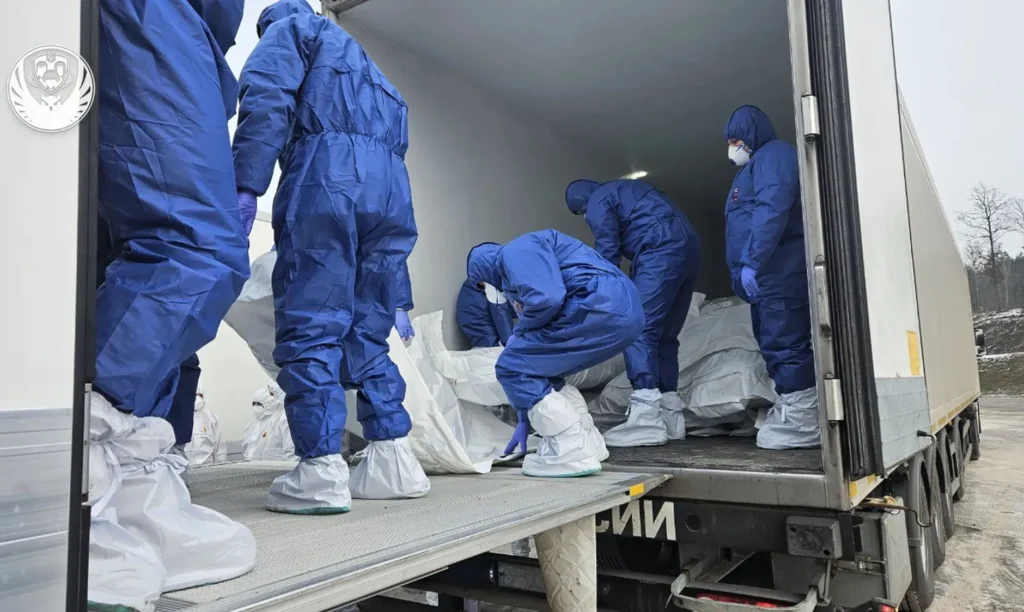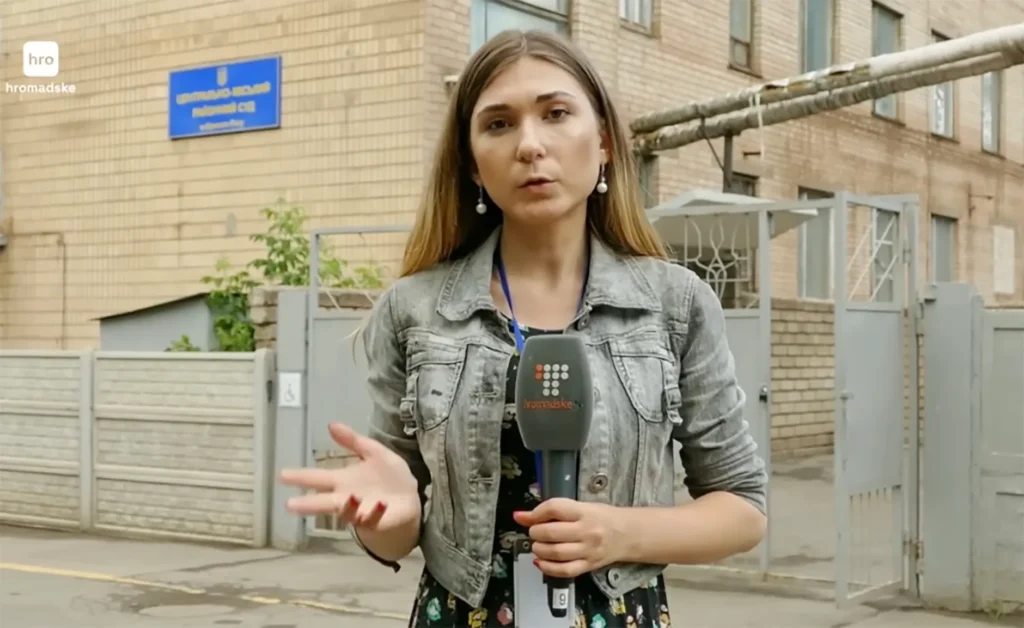KYIV, Ukraine – Ukrainian authorities have accused Russia of returning the mutilated body of missing journalist Viktoria Roshchyna, 27, whose remains were found with her eyes, brain, and parts of her larynx removed—a pattern that officials say highlights a disturbing practice in the ongoing war.

Roshchyna, an award-winning investigative journalist known for her reporting in occupied areas of Ukraine, had been held as a prisoner by Russian forces since 2023. Her body was recently repatriated in a body bag labeled “unidentified male,” but DNA tests confirmed the remains were hers.
The discovery of her remains shocked Ukrainian officials and human rights advocates. Forensic investigators reported signs of extreme torture. Her head was shaved, one of her neck vertebrae was broken, and burn marks consistent with electric shocks were found on her feet. One of her ribs was fractured, and her internal organs, including her eyes and brain, had been removed.
“These are not isolated acts. This is a systematic pattern of war crimes,” said a Ukrainian official familiar with the investigation. “Roshchyna’s mutilation is emblematic of the brutality inflicted by Russian forces on civilians and journalists.”
Experts suggest the removal of critical body parts such as the brain and eyes is an attempt to conceal forensic evidence of torture. According to forensic pathologists, the larynx can reveal signs of strangulation, while the eyes and brain may hold evidence of oxygen deprivation.
Roshchyna was last seen in summer 2023 reporting from Energodar, a city under Russian occupation. Witnesses later confirmed she was transferred to Melitopol, where she was held for four months and reportedly subjected to repeated beatings and deprivation. She was later moved to SIZO-2 in Taganrog, a notorious Russian detention center compared by survivors to a concentration camp.
One former detainee said, “Even the term ‘concentration camp’ falls short. What happens in SIZO-2 defies comprehension.”

During captivity, Roshchyna suffered severe health deterioration, including fevers, amenorrhea, and acute abdominal pain. Yet according to accounts from fellow detainees, she refused to cooperate with her captors, allegedly telling them, “I will never cooperate with you.”
Roshchyna worked for Hromadske TV and several independent media outlets. Her death adds to the mounting civilian toll in a conflict marked by war crimes and human rights abuses.
Meanwhile, the war continues to escalate. In the Dnipropetrovsk region, a Russian drone strike killed a 12-year-old girl and injured several others. A separate attack in Kyiv destroyed a three-story recreational center and wounded a woman.
President Volodymyr Zelensky praised Ukrainian intelligence for the reported assassination of Russian Lieutenant-General Yaroslav Moskalik, who was killed in a car bombing in Moscow last week. The Kremlin has not confirmed his death.
As the violence intensifies, observers fear the conflict is entering a new, darker phase. Russia’s mutilation of Roshchyna’s body has been condemned internationally as a possible war crime, further deepening tensions ahead of a ceasefire deadline Moscow has shown no signs of honoring.



